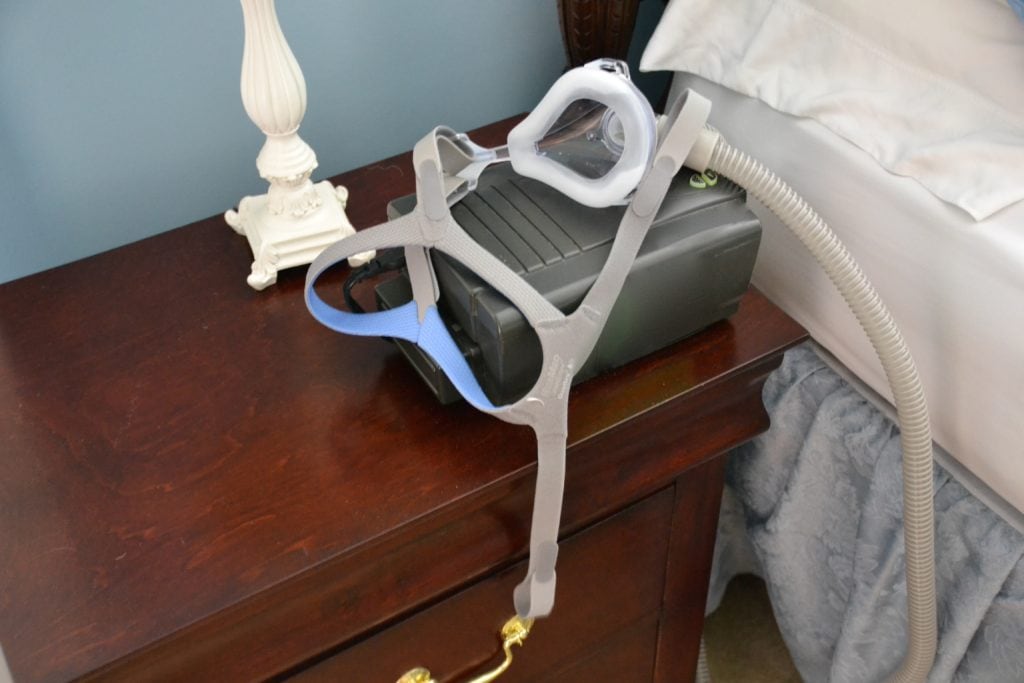Philips CPAP Lawsuit Lawyers
A Philips CPAP lawsuit demands compensation for injuries caused by this defective medical device. Patients who use these medical products and suffered harm have the right to file a claim for damages. Several cases have already been filed in the United States. Philips CPAP and BiPAP machines are currently being recalled due to the degradation of the polyester-base polyurethane (PE-PUR) noise abatement foam, which can cause particles and gases to be inhaled by the user and cause permanent damage.
If you have used a Philips CPAP or BiPAP machine and been diagnosed with cancer, lung injury, or pulmonary fibrosis, you may be eligible to file a lawsuit. Our dangerous devices lawyers can help you demand justice.
CPAP and BiPAP systems are both non-invasive forms of therapy for patients suffering from sleep apnea.
CPAP stands for “Continuous Positive Airway Pressure.” CPAP machines are used by adults with severe breathing problems during sleep but are also used for infants whose lungs are not fully developed.
BiPAP stands for “Bilevel Positive Airway Pressure.” BiPAP (also referred to as BPAP) machines are used most often by patients with congestive heart failure, coronary artery disease, and pulmonary or neurologic medical disorders.
- How do CPAP and BiPAP Machines Help With Sleep Apnea?
- Which CPAP Machines Are Recalled?
- What Are The Side Effects of PE-PUR?
- Is There a CPAP Class Action Lawsuit?
What is Sleep Apnea?
Sleep apnea is a serious sleep disorder where breathing stops and starts. There are two main types of sleep apnea, obstructive and central. The symptoms for both overlap, so it can be hard to determine which kind you may have. The symptoms include:
- Waking with a headache
- Loud snoring
- Waking with dry mouth
- Gasping for air during sleep
- Insomnia (difficulty staying asleep)
- Hypersomnia (excessive daytime sleepiness)
- Stopping breathing when sleeping (usually noticed by another person)
The business-related to sleep problems is known as the “sleep economy.” Industries that sell products to help people sleep better include the sale of mattresses, bedding, pillows, sleep supplements, and medical devices. CPAP and BiPAP machines account for a large percentage of the sleep economy with sales exceeding $25 billion a year in the United States alone. Both adults and infants use these machines as sleep aids.
How do CPAP and BiPAP Machines Help With Sleep Apnea?
 CPAP and BiPAP machines are prescribed by your doctor to help regulate your breathing if you’ve been diagnosed with sleep apnea. They use air pressure generated by a machine, delivered through a mask that fits over the nose and mouth to regulate breathing and keep the airway open during sleep.
CPAP and BiPAP machines are prescribed by your doctor to help regulate your breathing if you’ve been diagnosed with sleep apnea. They use air pressure generated by a machine, delivered through a mask that fits over the nose and mouth to regulate breathing and keep the airway open during sleep.
Why Did The FDA Recall Philips CPAP Machines?
The U.S. Food and Drug Administration (FDA) has issued a recall of Philips Respironics CPAP and BiPAP machines due to the potential health risks. The polyester-based polyurethane (PE-PUR) used for sound abatement within the machine can break down and be inhaled or swallowed by the user.
Which CPAP Machines Are Recalled?
The recalled Philips CPAP and BiPAP devices are:
- DreamStation ASV
- DreamStation ST, AVAPS
- SystemOne ASV4
- C Series ASV, S/T, AVAPS
- OmniLab Advanced Plus In-Lab Titration Device
- SystemOne (Q series)
- DreamStation CPAP, Auto CPAP, BiPAP
- DreamStation GO CPAP, APAP
- Dorma 400, 500 CPAP
- REMStar SE Auto CPAP
- Trilogy 100 Ventilator
- Trilogy 200 Ventilator
- Garbin Plus, Aeris, LifeVent Ventilator
- A-Series BiPAP V30 Auto Ventilator
- A-Series BiPAP V30 Auto Ventilator
- E30 (Emergency Use Authorization)
What Are The Side Effects of PE-PUR?
The side effects of inhaling PE-PUR particles can cause the body to attempt to encapsulate the particles, which increases the probability of cancer. Or, the body won’t try to encapsulate the particles and they will instead continue to degrade and enter the bloodstream, where they will then travel to other organs of the body.
The CPAP user may complain of:
- Headaches
- Irritation
- Inflammation
- Respiratory issues
- Hypersensitivity
- Nausea/vomiting
Is There a CPAP Class Action Lawsuit?
There is at least one class-action CPAP lawsuit filed against Philips Respironics. The complaint alleges that Philips knew about the risks and defects of the CPAP machines long before the recall was issued.
The complaint also alleges that patients who used the affected devices have complained to Philips regarding the particles in the machines for many years, but Philips did not warn the public regarding the hazards until late April 2021 and did not issue a recall of the affected machines until June 14, 2021.
Talk to an Attorney about Filing a Philips CPAP Lawsuit
Our Philips CPAP lawyers can help if you or someone you care about was diagnosed with cancer after using a recalled CPAP machine. The following criteria must be met to participate in a CPAP lawsuit:
- Used a Philips Respironics device from the above recall list that was manufactured between 2009 and April 26, 2021
- Diagnosed with cancer, lung injury, or pulmonary fibrosis
Contact us today for your free case review. Our legal team will review your medical records to determine if you have a case. If you do qualify for a claim, we will start your case immediately. We charge no fees unless we win.
 (866) 280-4722
(866) 280-4722 

